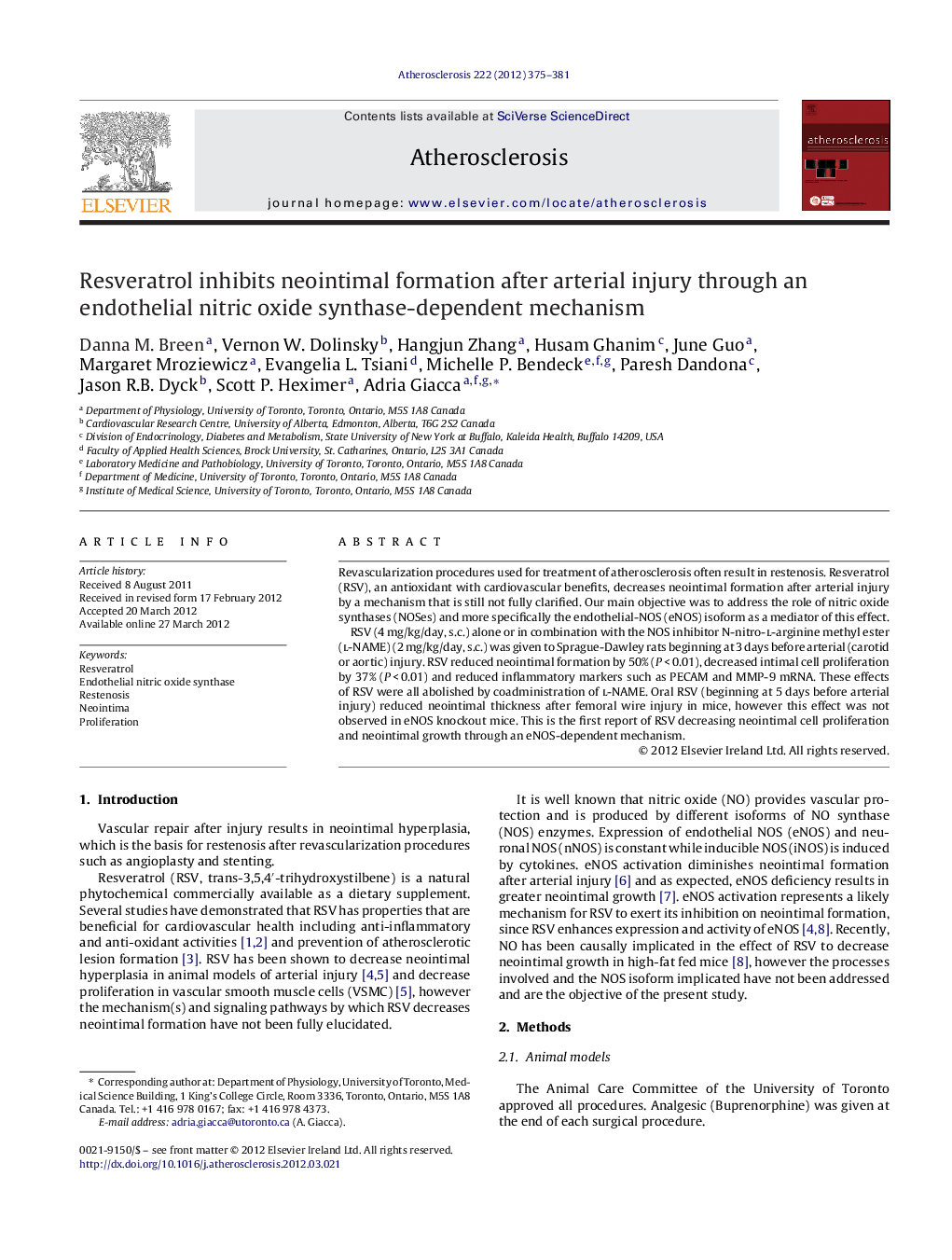| Article ID | Journal | Published Year | Pages | File Type |
|---|---|---|---|---|
| 5948176 | Atherosclerosis | 2012 | 7 Pages |
Revascularization procedures used for treatment of atherosclerosis often result in restenosis. Resveratrol (RSV), an antioxidant with cardiovascular benefits, decreases neointimal formation after arterial injury by a mechanism that is still not fully clarified. Our main objective was to address the role of nitric oxide synthases (NOSes) and more specifically the endothelial-NOS (eNOS) isoform as a mediator of this effect.RSV (4 mg/kg/day, s.c.) alone or in combination with the NOS inhibitor N-nitro-l-arginine methyl ester (l-NAME) (2 mg/kg/day, s.c.) was given to Sprague-Dawley rats beginning at 3 days before arterial (carotid or aortic) injury. RSV reduced neointimal formation by 50% (P < 0.01), decreased intimal cell proliferation by 37% (P < 0.01) and reduced inflammatory markers such as PECAM and MMP-9 mRNA. These effects of RSV were all abolished by coadministration of l-NAME. Oral RSV (beginning at 5 days before arterial injury) reduced neointimal thickness after femoral wire injury in mice, however this effect was not observed in eNOS knockout mice. This is the first report of RSV decreasing neointimal cell proliferation and neointimal growth through an eNOS-dependent mechanism.
► We investigated the mechanism whereby resveratrol, a red wine polyphenol, decreases restenosis. ► We used two models of restenosis, arterial balloon injury in rats and arterial wire injury in mice. ► We found that the effect of resveratrol to decrease neointimal growth after arterial injury was abolished in rats treated with an inhibitor of nitric oxide synthase and also in mice genetically deficient of endothelial nitric oxide synthase.
